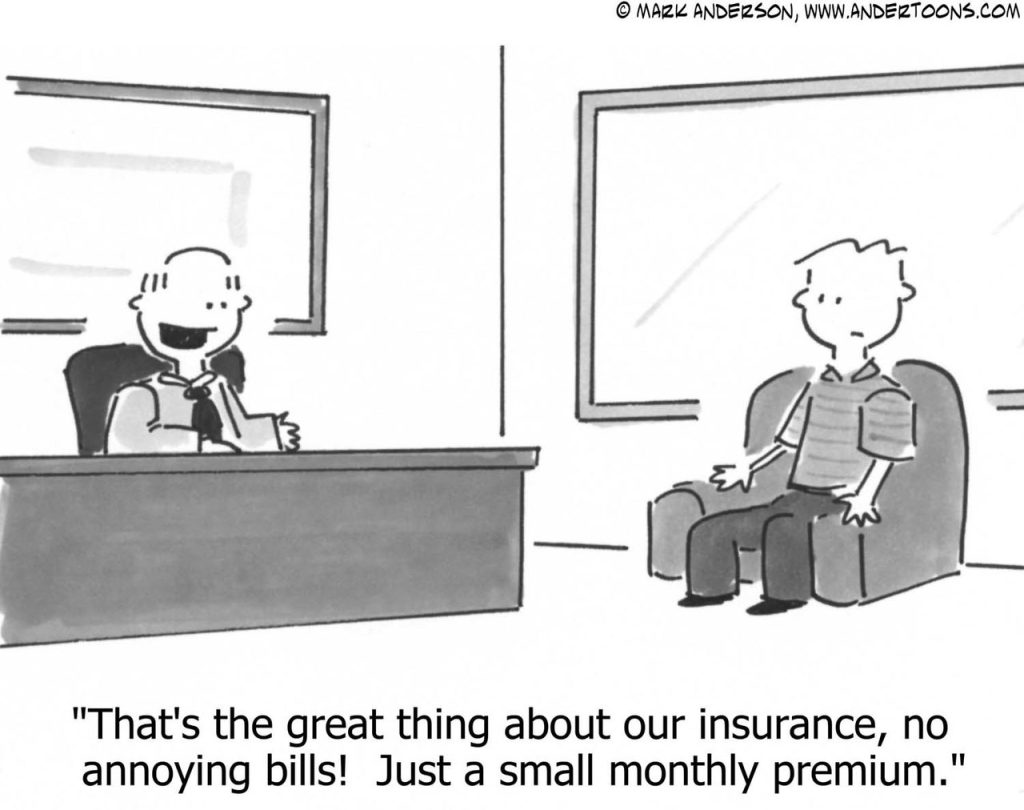You decided to relocate to the U.S., and now you have ahead of you a huge list of things that you need to sort out or that you feel unsafe about. I created this series to help others about big loopholes that I fell into when moving.
In this part we will be taking a look at insurance. As an European (Swiss to be more precise), I have to say, we tend to be very insurance focused. While it did not really feel this way when I lived in Europe, I had to adapt my view a bit after moving over the pond. You will find that in the U.S., handling insurance differs a lot.

In general
Long story short: One of the biggest hassles I had to go through was insurance. Most insurances will look at your credit score and your past insurance history (only U.S. history). You have neither of those, and this will raise the premium you will have to pay. While not having credit score will have impact on the premium directly and is kind of self explanatory, not having insurance history means that you are treated like a first time insured or someone that was cancelled from his previous insurance for some reason.
You will need the following insurance coverages (list ordering starting at easy going to hard).
- Rental property insurance (only a must if you rent, however, you should protect your property anyway?)
- Health insurance (often also called benefits by employers)
- Car insurance
What I found is, that working with insurance agents is a very tiring process. So get ready to be in touch with a lot of people that do not really know what they are doing… More on that later.
Rental property insurance
Rental property insurance is most likely the easiest insurance to get at an affordable price (that does not mean a fair price ;-)). If you do not rent but buy a house, it is also highly suggested to get insurance for that house, however, it is not mandatory. Insurance for rental property is in most cases a requirement of the landlord, he will specify to you what coverage you need and you will then use that information talk to any agent. While I did not have any past history in credit and insurance, as the premium is fairly low, the actual cost does not matter that much. I pay 25$ per month for a household of two (which is a lot compared to locals, but given the total amount you will pay in total this is little).
Important to mention here, there are three main parameters that define the total premium: The personal property coverage (the amount your stuff is worth), the liability (indicates the insured amount for the property owner) and finally the deductible. We had personal property coverage of 20k (rather high compared to locals), liability of 300k (which is very high, but was the lowest our insurer would go, landowner asked for 100k…) and deductible 1k. The figures can be influenced by you, and the higher / lower they are, the more or less you pay.
Health insurance
Health insurance in the U.S. is usually directly connected to your work-contract. Your employer does decide what packages he will offer, and in my case, I was able to choose from three different tiers of insurance.
Health insurance (in my case) is part of the benefits package of an employer – services an employee can take advantage of while he works for a given company. Like all other benefits, with the first day of employment, you will be eligible for health insurance, too. Should you decide to quit or be dismissed, you will also lose your insurance. You are not required to have health insurance. Your decision whether to get health insurance via your employer can be changed only once by year (opting in when necessary is not possible) or through a life-changing event.
Availability of insurance for couples: Based on this article: https://www.healthinsurance.org/faqs/if-i-have-access-to-health-insurance-can-my-husbands-company-deny-me-coverage/, companies are not obliged to offer health insurance for spouses. 86% of employers however do so. So be sure to check for this, should one of you not be working. Our company provided insurance for both me and my spouse, the premium to pay is relatively seen a little higher per person, but this is neglectable. If both of you work, it can also be worth it to compare both employers offerings and going with one or another together.
Important to know is also that your employer will actually pay part of your monthly premium! The amount paid is going to differ a lot I assume, but my company pays more than 50% of the total monthly premium. Based on an internal questionnaire, our health plans are however above average compared to other employers…
All of that said, the offered packages I was able to choose from where three, a 5k, 2k and 1k deductible plan (comparable to the Swiss “Franchise” system), where the 5k and 2k deductible plans offered an HSA (Health Savings Account), while the 1k plan does not. HSA is basically a debit card that is loaded with money by you and your employer. The money that is loaded to the account is freed of income tax. If the employer also pays towards that account, this is a present to you. With this account, you are able to pay your medical bills and medication. Money on it is never lost and can be rolled over at the end of the year. You are able to cash out an HSA account, however you will have to pay a fee as well as taxes at that point in time.
Insurance payments will be deducted directly from your paycheck, which is in my opinion a very nice way of handling things.
And how expensive is insurance? Well, all is relative, and depending on the plan you are going for, the amount you will have to pay can be from mediocre to high. However, keep in mind that I only pay a bit less than half of the premium! At the time of writing, I pay 90$ per paycheck (paychecks arrive bi-weekly, so you can approximately double that amount to get the monthly sum) with a 2k deductible plan.
Car insurance
This is the most “adventurous” part of getting insurance. Because with car insurance, you are “failing” all above mentioned metrics horribly, including: Credit score, previous insurance history, an U.S. driving license.
How to approach this: Get ready to pay a lot in the first six months of insuring your first car in the U.S. There are some ways to reduce that, but these all have some strings attached. Without fulfilling any of the metrics above, premiums can go as high as 1200$ PER MONTH. While this is the most extreme example I have heard of, just be aware that they could ask you for that amount of money.
What makes this whole process of getting insurance a lot more annoying is, that most interaction with insurance companies is automated – this starts with websites offering comparison services (as my personal tip: do not use them) and automated, statistics based evaluations that ensure that you will get the worst premium possible.
Why not using these comparison services? Well, they cannot offer you a meaningful quote as you are a statistical outlier. What they will do instead is gather all your personal data and annoy you to oblivion with automated phone calls and tons of emails. That said, what companies should you get a quote from? Following insurers were suggested by locals:
- American Family
- Progressive
There are more, but knowing these two, you will be able to find lists that mentions all of them. If you get a local agent to call to from one of these, use your chance and get in touch, this will make all so much easier (not them calling you, you calling them!).
How to reduce your premium? First of all, you cannot influence your credit score in a timely manner, so a better credit score will only come in handy after you have been in the country for at least a year.
Previous insurance: Maybe you get lucky and they accept your previous insurance in your originating country. It is also important to know that insurers understand “not having car insurance” as either being a new driver or having been cancelled by the previous insurer. U.S. citizens tend to keep their insurance and continue to pay, even when not owning a car!
The only thing you can actively influence is getting a local driving license (which you will have to get anyway) and waiting with insuring your car until you passed your driving exam (means not buying a car, not insuring is illegal in most states). So do it. Keep driving rentals until you have passed the exam, it will most likely be worth it.
As soon as you have insurance, you should also think about changing between insurers after your insurance runs out. This will reduce the premium most likely. At this point in time, you can use these comparison sites I mentioned above, as they will generate quotes for all insurers at a time. Remember, this is a capitalists country, nobody will reduce your premium, they will only charge you more if they can.
There are still two more ways you can get insurance in the U.S. that I know of:
- Tesla insurance. Tesla offers insurance for its own vehicle based on your driving score. This will be most certainly a cheaper way of getting started with insurance. This is what I want to give a try.
- Installing a recorder in the car. This might not even be optional if you start driving here. However, I heard that this will reduce your premium very fast as you already know how to drive.
Summary
Insurance is very expensive. Therefore, the above stated tips and tricks should help you get a ok-ish deal. Remember that you will pay a premium in the beginning, no matter what you do. The earlier you can accept this, the easier this will be for you.
I will update this article should more information come to light.
